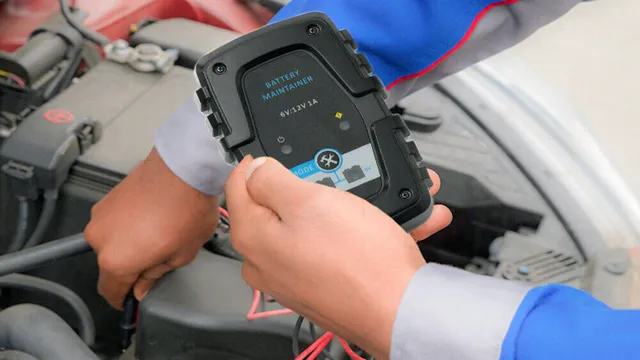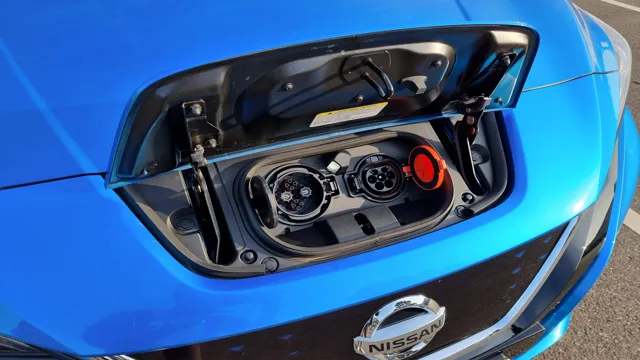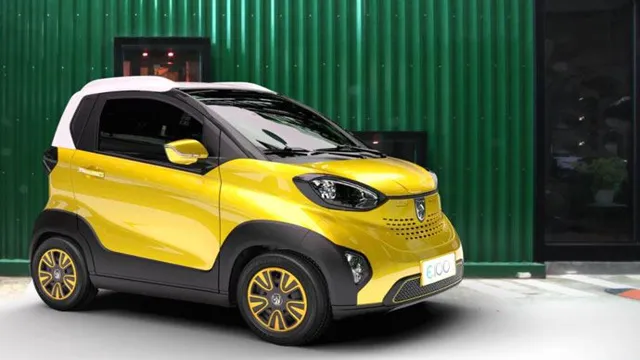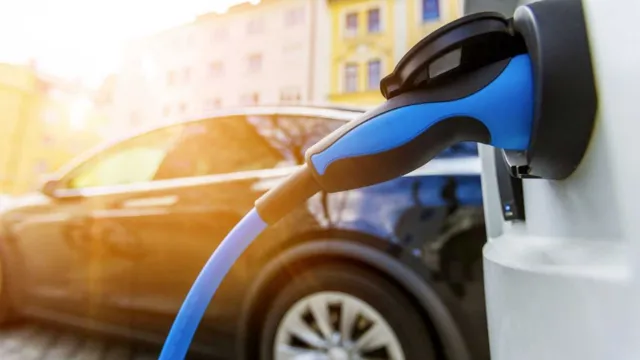Eco-Friendly and Cost-Effective: Why Electric Cars are Cheaper to Maintain
Electric cars have come a long way, and they are now rapidly gaining popularity among car owners worldwide. One of the biggest advantages of electric cars is their low operating cost, which includes maintenance costs. In fact, electric cars are known for offering cost-effective maintenance, which can result in significant savings for car owners.
In this blog, we will delve into the reasons why electric cars are so easy and cost-effective to maintain, and what that means for prospective EV buyers. So, buckle up and join us on this electric ride to discover how low-cost maintenance can make electric cars the perfect sustainable solution for your daily commute!
Cost of Maintenance
When it comes to owning a car, one of the biggest expenses that drivers can expect is the cost of maintenance. However, with electric cars, you can expect to save some money in this area. Because electric cars have fewer moving parts than gasoline-powered cars, there are fewer things that can go wrong and less wear and tear overall.
This means that you’ll need to have your electric car serviced less frequently, and when you do, the cost of maintenance is typically lower. In fact, studies have shown that electric cars are up to two-thirds less expensive to maintain than traditional cars. So not only will you be reducing your carbon footprint and helping the environment, but you’ll also be saving money in the long run.
Comparing Gasoline and Electric Cars
When it comes to the cost of maintenance, electric cars have a clear advantage over gasoline cars. Electric cars have fewer moving parts, which means less wear and tear and fewer repairs. They also don’t require oil changes, which can be a significant expense for gasoline cars.
Additionally, electric cars have regenerative braking systems, which help extend the life of brakes by slowing down the car with the motor instead of the brake pads. While electric cars may still require some maintenance, such as tire rotations and brake fluid replacements, the cost is generally lower than that of a gasoline car. With the lower overall maintenance costs, electric cars can be a smart financial choice in the long run.
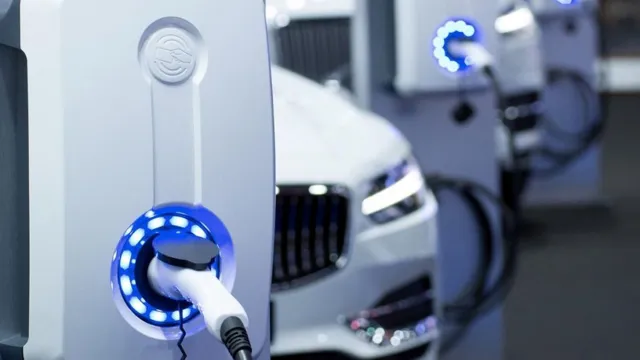
Maintenance Costs for Gasoline Cars
When it comes to owning a gasoline car, one of the most crucial factors to consider is the cost of maintenance. Maintenance costs for gasoline cars can add up quickly, but it’s essential to keep up with regular maintenance to ensure the longevity and reliability of your vehicle. Costs can vary depending on the make and model of your car, as well as the region in which you live.
Some common maintenance expenses include oil changes, tire rotations, and brake replacements. Additionally, factors such as wear and tear, driving habits, and environmental conditions can affect the frequency and cost of maintenance. Neglecting regular maintenance can lead to costly repairs down the line, so it’s essential to stay on top of routine upkeep to keep your car running smoothly.
While it can be tempting to put off maintenance due to cost concerns, investing in regular upkeep can ultimately save you money in the long run and prevent unexpected breakdowns.
Maintenance Costs for Electric Cars
When it comes to owning an electric car, one of the biggest advantages is the cost of maintenance. Compared to traditional gas-guzzling cars, electric cars require much less maintenance and generally have lower repair costs. This is because electric cars have far fewer moving parts, thus reducing the likelihood of any wear and tear issues.
Additionally, electric cars don’t require oil changes and have regenerative braking systems, which help to reduce brake wear. However, electric cars do require some routine maintenance, such as tire rotations and brake pad replacements. Overall, the cost of maintenance for electric cars is significantly lower than that of gas cars, making them a highly cost-effective option in the long run.
Investing in an electric car can not only benefit the environment but it can also benefit your wallet.
Maintenance Savings with Electric Cars
When it comes to owning a car, one of the major expenses is maintenance. However, with electric cars, the cost of maintenance is significantly lower compared to their gasoline counterparts. This is because electric cars have fewer moving parts and require less frequent maintenance.
For example, they don’t need oil changes, spark plugs, or a new exhaust system since they don’t have an internal combustion engine. The biggest expense for electric cars is the battery, which may need to be replaced at some point, but this is a rare occurrence, and it’s still much cheaper than replacing a whole engine. Additionally, regenerative braking in electric cars helps to prolong brake life, reducing maintenance costs even further.
Overall, owning an electric car can result in substantial savings in maintenance costs, making them a practical and cost-effective choice for savvy car owners looking to save money.
Longevity and Reliability
Electric cars are less expensive to maintain than traditional gasoline vehicles. One of the reasons for this is that electric cars have fewer moving parts, which means there are fewer components that can go wrong. Additionally, electric cars have longer lifespans, as they don’t experience the same wear and tear as gasoline vehicles.
Another benefit is that electric cars don’t require oil changes or other routine maintenance that gasoline vehicles need. This translates to significant cost savings over the lifetime of the vehicle, making the initial higher cost of purchasing an electric car ultimately worth it. So, if you’re looking for a car that is not only environmentally friendly, but also easier on your wallet in the long run, an electric car might just be the way to go.
Electric Cars vs Gasoline-powered ones
When it comes to longevity and reliability, electric cars have a clear edge over gasoline-powered ones. One reason for this is that electric motors have far fewer moving parts than internal combustion engines, which translates to lower maintenance and repair costs over the long term. In addition, electric cars have regenerative braking systems that not only improve efficiency but also reduce wear and tear on the brakes.
Moreover, electric cars have fewer fluids and lubricants than gasoline-powered cars, which means there is less chance of leaks, spills, or contamination. On the other hand, gasoline-powered cars have complex engines that require regular tune-ups, oil changes, and replacements of various components. This not only costs more money but also takes more time and effort.
Overall, electric cars are more durable and dependable than their fossil-fuel-consuming counterparts, making them a practical choice for those who value longevity and reliability.
Battery Life and Replacement Costs
When it comes to battery life and replacement costs, longevity and reliability are two key factors to consider. A battery’s lifespan can vary greatly depending on the type of device it’s used in, how frequently the device is used, and how well it’s maintained. While some batteries may last for several years before needing to be replaced, others may only last a few months.
When it’s time to replace a battery, the cost can also vary depending on the device and the type of battery needed. It’s important to choose a reliable brand and to properly maintain your battery to ensure it lasts as long as possible. Think of your battery like a car – regular maintenance and care will lead to a longer lifespan and fewer replacement costs down the road.
So, take good care of your battery and it will take care of you!
Conclusion
In summary, it seems that the future of transportation is not only environmentally friendly but also financially savvy. Electric cars have proven to be less expensive to maintain than gasoline-powered vehicles, meaning that not only will we be reducing our carbon footprint, but we’ll also be keeping some green in our wallets. So next time you’re in the market for a new ride, consider going electric, and let the savings spark joy in your wallet!”
FAQs
Are electric cars really less expensive to maintain compared to traditional gasoline cars?
Yes, electric cars are generally less expensive to maintain since they have fewer moving parts and do not require regular oil changes and engine maintenance.
Do electric cars have lower repair costs than gasoline cars?
Yes, electric cars typically have lower repair costs since they have fewer parts that can break down and have longer lifetimes. Plus, a lot of electric car components are covered by longer warranties than gasoline cars.
Do electric cars require special maintenance compared to gasoline cars?
Electric cars do require different maintenance compared to traditional gasoline cars, such as battery maintenance and software updates. However, the overall maintenance is still typically less expensive than gasoline cars.
Can electric cars save owners money in the long run due to lower maintenance costs?
Yes, electric cars can save owners money in the long run due to lower maintenance costs, especially if they drive a lot and have high regular maintenance expenses on traditional gasoline cars. Additionally, charging an electric car often costs significantly less than buying gasoline.


